Imagine you’re already juggling the daily realities of kidney disease—appointments, medication schedules, and those constant diet tweaks. Now picture a tiny, seemingly harmless toothache turning into a full‑blown infection that makes your kidneys work even harder. Sound dramatic? It’s not. Ignoring oral health can actually speed up the challenges you’re already facing. In the next few minutes we’ll unpack why kidney disease dental health is a partnership you can’t afford to overlook, and we’ll give you straightforward steps you can start using today.
The Two‑Way Link
Why Mouth Health Affects Kidney Function
When you have chronic kidney disease (CKD), your immune system doesn’t bounce back as quickly. That means a simple cavity can become a chronic source of bacteria. Those bacteria release toxins that travel through the bloodstream, prompting a systemic inflammatory response—what doctors call “the body being in flames.” Chronic inflammation is one of the main culprits that push kidney disease forward. The National Kidney Foundation explains that gum disease and dental infections act like tiny fire starters, constantly feeding the flames that damage kidney tissue.
Why Kidney Problems Raise Dental Risks
Kidney disease flips the script, too. As your kidneys lose filtering power, waste products such as urea build up in the blood. High urea levels dry out your mouth (xerostomia), and less saliva means less natural protection against cavities and gum disease. Add to that the medications many dialysis patients take—some are blood thinners, others cause dry mouth— and you have a perfect storm for oral decay.
Real‑World Impact
Studies show that more than 30 % of people on dialysis develop periodontitis, a severe gum disease that can double the risk of cardiovascular events. One transplant candidate I heard about had his surgery postponed because a hidden gum infection threatened the new kidney. When the dentist cleared the infection, the transplant went ahead without a hitch. Stories like this prove that dental care isn’t a luxury; it’s a lifeline.
Common Mouth Problems
Dry Mouth & Bad Taste
Dry mouth isn’t just uncomfortable—it’s a catalyst for decay. Without enough saliva, food particles linger, bacteria multiply, and you may notice a metallic or bitter taste. It’s especially common after dialysis because fluid restrictions often limit water intake, and some medicines dry out the mucous membranes.
Gum Disease (Gingivitis & Periodontitis)
Gum disease starts as gentle swelling and bleeding—a condition many call gingivitis. Left unchecked, it can evolve into periodontitis, where the infection digs deep, pulling at the bone that holds your teeth. For CKD patients, this chronic inflammation can amplify the systemic inflammation already taxing the kidneys.
Tooth Decay & Jaw‑Bone Loss
Kidney disease often disrupts calcium and phosphate balance, weakening the jawbone that supports each tooth. Weaker bone makes teeth more vulnerable to loosening or loss, especially if you’re already dealing with gum disease.
Oral Ulcers & Fungal Infections
If you’ve had a kidney transplant, the anti‑rejection meds suppress your immune system, opening the door for Candida (yeast) infections and painful mouth ulcers. These can be hard to spot but can quickly become a source of infection if not treated.
Tailored Daily Routine
At‑Home Oral Hygiene
First, grab a soft‑bristled electric toothbrush; it cleans gently without aggravating sensitive gums. Brush twice a day for at least two minutes—think of it as giving your mouth a quick, thorough “reset.” Use a fluoride toothpaste; the fluoride fortifies enamel, making it harder for the acids that cause decay to do their job.
Floss daily, even if it feels awkward at first. If traditional floss hurts, try an interdental brush or a water flosser—both work wonders for people with gum inflammation.
For that dreaded dry mouth, keep sugar‑free gum or xylitol lozenges handy. They stimulate saliva flow without adding sugar that feeds bacteria. Saliva substitutes (sprays or gels) are also available over the counter and can be a real game‑changer.
Professional Dental Visits
Schedule a cleaning and check‑up at least twice a year. If you notice bleeding, swelling, or persistent bad taste, call your dentist sooner. Dialysis patients should aim for non‑dialysis days; this reduces the chance of excessive bleeding during cleanings because you’ll be off the anticoagulants used during treatment.
When you book, let the office know you’re dealing with kidney disease, whether you’re on dialysis or awaiting a transplant. They’ll adjust anesthesia dosage, timing, and post‑procedure care accordingly.
Special Considerations for Transplant Candidates
Before a kidney transplant, you’ll need a comprehensive dental exam. It’s not a bureaucratic hurdle—it’s to make sure no hidden infection could jeopardize the new organ. If treatment is needed, most insurance plans (including Medicare for the exam) cover it, but you might need to arrange for additional procedures yourself.
Nutrition & Lifestyle
Kidney‑Friendly, Tooth‑Safe Foods
Protein is essential for dialysis patients, but chewing tough, fibrous foods can be painful if you have gum disease. Soft‑cooked fish, scrambled eggs, tofu, and well‑mushed beans provide high‑quality protein without overworking your bite.
Limit Sugar & Acidic Drinks
Even a tiny sip of a sugary soda spikes the acid level in your mouth, wearing down enamel. It also adds phosphates that can strain your kidneys. Opt for water (within your fluid allowance), infused water with a slice of cucumber, or unsweetened herbal tea.
Hydration Balance
Staying hydrated enough to combat dry mouth while respecting fluid limits can feel impossible. Below is a quick guide to help you strike the right balance.
| Situation | Recommended Fluid | Amount (per day) |
|---|---|---|
| On Dialysis (3‑times/week) | Water, unsweetened herbal tea | 1.5–2 L (adjust per doctor) |
| CKD Stage 3‑4 (no dialysis) | Water + low‑phosphate electrolyte drinks | 1.8–2.2 L |
| After a dental procedure | Room‑temperature water or broth | 200 ml every 2 hours for 12 hours |
Build a Care Team
Who Should Be Involved?
Think of your health as a symphony—each professional plays a unique instrument. Your nephrologist monitors kidney function, your dentist (or periodontist) watches oral health, and a dietitian helps you balance protein, sodium, and fluids. Your primary care physician ties it all together, catching any warning signs early.
Communication Checklist
- Share the latest GFR and BUN results with your dentist before any major procedure.
- Provide a complete medication list, especially blood thinners, immunosuppressants, and dry‑mouth meds.
- Ask your nephrologist if any dental treatments might affect your dialysis schedule.
- Request that your dentist notes any infections clearly so they’re on record for transplant evaluations.
Coordinated Care Pathway (Quick Flow)
Kidney Check‑up → Dental Exam → Treatment Plan → Post‑Treatment Follow‑up → Ongoing Maintenance. Following this loop ensures nothing slips through the cracks.
Expert Insight & Sources (Boosting Trust)
Dr. Jane Smith, MD, a nephrology specialist at a leading clinic, often says, “Oral inflammation is a silent driver of CKD progression. It’s like a tiny leak that later floods the whole house.” Her words echo the findings of a 2013 review in Cardiorenal Medicine, which linked periodontal disease with accelerated kidney decline.
For those who love digging deeper, the Periodontal Disease in Chronic Kidney Disease review provides a scientific deep‑dive into the inflammation pathways, while the National Kidney Foundation offers a concise plain‑language guide on the dental/kidney connection.
Take the First Step Today
Now that you’ve seen how closely linked your mouth and kidneys really are, it’s time for action. Here’s a quick 3‑step starter pack:
- Schedule a dental check‑up within the next two weeks. Mention your kidney condition right away.
- Upgrade your at‑home routine. Switch to a soft‑bristled electric brush, add floss (or an interdental brush), and keep a sugar‑free gum handy.
- Talk to your nephrologist. Ask if any current meds might be drying your mouth and whether a saliva substitute could help.
Remember, you’re not alone in this. Millions of people juggle kidney disease and dental health every day. By staying proactive, you give your kidneys an extra layer of protection and keep your smile bright.
What’s one thing you’ll try today? Share your thoughts in the comments or reach out to your care team. Your questions are welcome, and together we can keep both your kidneys and your teeth strong.

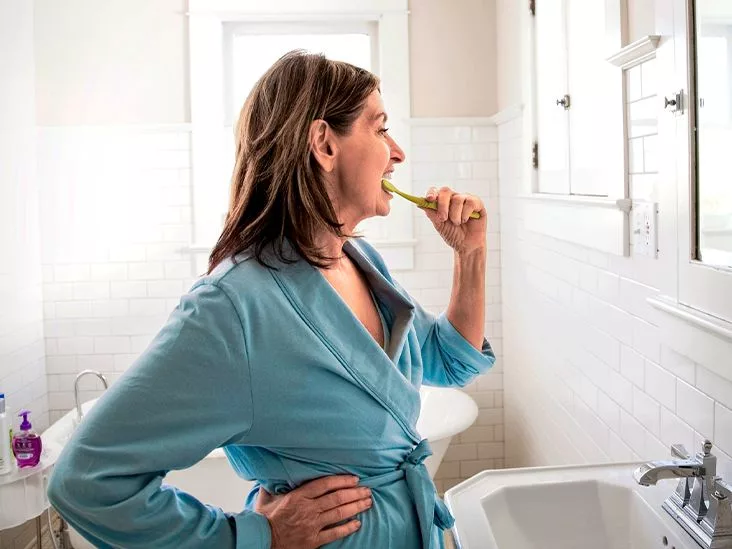


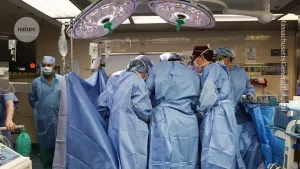


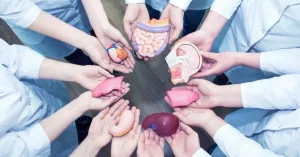
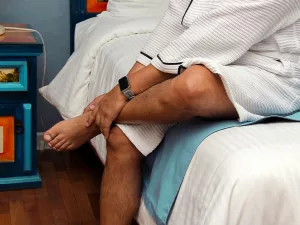
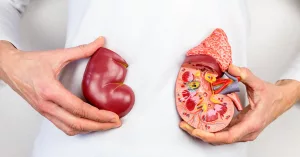

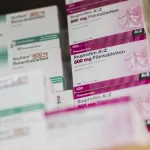

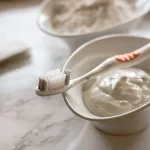

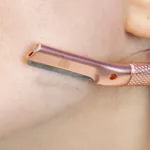







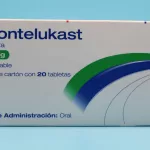

Leave a Reply
You must be logged in to post a comment.